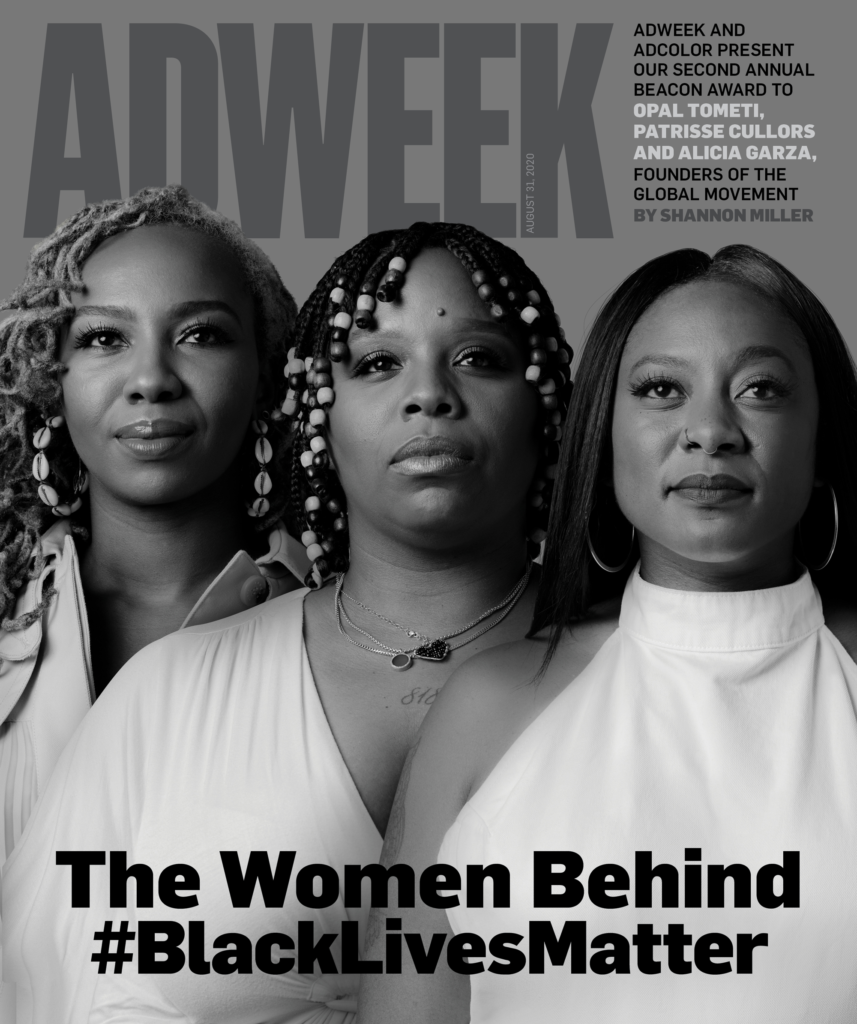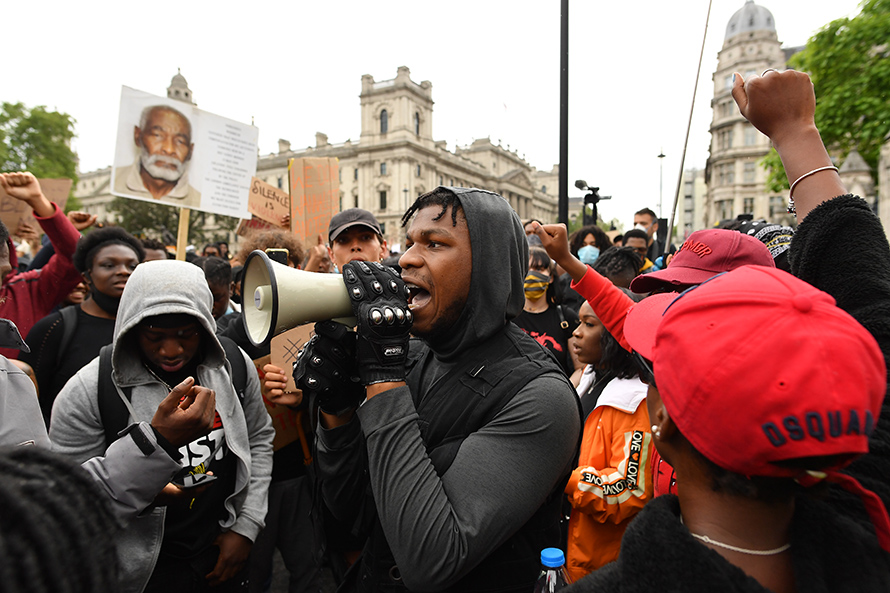Adweek Interviews the 3 Women Who Founded Black Lives Matter—and Started a Global Movement
In a year filled with unforgettable moments, there’s one in particular that stands out for Patrisse Cullors. On June 7, after more than a week of global protests in the wake of George Floyd’s death, an estimated 100,000 people marched in Los Angeles. Aerial shots of the demonstration, which was organized by Black Lives Matter’s L.A. division, pictured a sea of protesters taking over Hollywood Boulevard. “I think that was the largest Black Lives Matter protest in the history of Los Angeles,” says Cullors, one of the three original co-founders of BLM, “and the footage is just gorgeous.”
For Cullors and her fellow BLM co-founders—Alicia Garza and Opal Tometi—this moment had been a long time coming. In 2013, when the three women established the movement, the idea of any corporation speaking out against systemic racism (even performatively) was widely considered a radical notion. This was three years before former San Francisco 49ers quarterback Colin Kaepernick began kneeling during the national anthem in protest and four years before Merriam-Webster officially added “woke” to the dictionary.

The years that followed were punctuated by numerous false starts, moments where tragedy triggered nationally recognized protests—like the 2015 Baltimore riots, which followed the death of Baltimore resident Freddie Gray, whose neck and spine were severed while he was being transported in a police van—but didn’t quite lead to a seismic shift in how predominantly white spaces or major corporations discussed racism.
Americans would witness a similar pattern with an all-too-long list of slain Black civilians who died at the hands of police: Botham Jean, Sandra Bland, Stephon Clark, Atatiana Jefferson and countless others. But the movement gained new urgency when 46-year-old George Floyd lost his life after officer Derek Chauvin kneeled on Floyd’s neck for an uninterrupted seven minutes and 46 seconds in Minneapolis on May 23, 2020.
Coming amid a global pandemic and worldwide quarantines, the incident proved to be a turning point for BLM—and for leaders and industries at large. On June 6, CNN teamed with Sesame Street for Coming Together, a town hall geared toward talking to children and families about racism. Celebrities and public figures such as Ariana Grande, Jennifer Lopez and even former Republican presidential nominee Mitt Romney marched alongside protesters in support of BLM.

Coca-Cola, Google, Lululemon and hosts of other companies donated millions of dollars to community funds and organizations committed to fighting for racial justice. Former President Barack Obama, whom Garza notes “struggled with the framework” of the movement during his presidency, praised the protests in an address from his home. “To see the president embrace it and to know that actually there was a whole process that he had gone through was actually very powerful,” she recounts.
The world was actually talking, and Black Lives Matter, believed to be the largest movement in U.S. history, was leading the conversation. In London, just one day after L.A.’s June 7 protest, thousands of activists braved the rain to flood Parliament Square with dewy homemade signs as they chanted “Black Lives Matter” and Floyd’s name in tandem. By that time, similar demonstrations had been unfolding in Rome, Madrid, Paris, New Zealand, South America, Africa and Asia. Images of mobilized citizens all around the world connected in a mosaic of hope as the globe sent a unified message.
https://www.adweek.com/brand-marketing/co-founders-of-black-lives-matter-on-starting-a-global-movement/